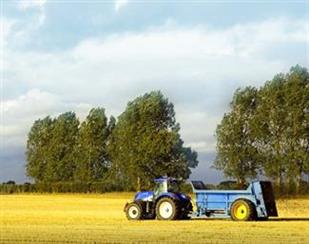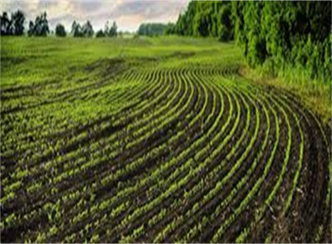| | | Biosolids Landspreading Program 
Biosolids are the solid and semi solid constituents composed mostly of cellulose that remains after sewage has undergone the treatment process in a wastewater treatment facility. Biosolids are tested for suitability and criteria specific for the allowed use as a soil amendment. Biosolids are tested for heavy metals and nitrogen constituents to prevent pollution associated with over application. Standards are established by the US Environmental Protection Agency. Additionally, the State of California Regional Water Quality Control Board regulates the land application of biosolids onto farmland within Solano County. Solano County Department of Resource Management further regulates the land application of biosolids onto farmland, and has established additional requirements through Solano County Code, Chapter 25.
The Solano County biosolids program involves onsite inspections to ensure land application is occurring in a manner protective of the environment and public health; review of reports and data to ensure biosolids material meets minimum standards for metals; and partnerships with the scientific community and other stakeholders to advance our knowledge regarding potential impacts and benefits of land application of biosolids. Applicators must submit and receive approval for site registration and land spreading notification from the Department of Resource Management. Complaints regarding odors, insects, health problems and land application practices will be addressed. Individuals making health complaints should inform their physician and this Department. You may submit a complaint online or leave a message on the 24-hour complaint phone line at (707) 580-7628. The Department of Resource Management has prepared a Year-End Biosolids Report that details the activities of the biosolids program for the previous year and highlights ongoing studies.
The use of biosolid compost is exempted from Solano County Code, Chapter 25 requirements provided the biosolid compost is not applied or secondary marsh or the primary zone of the Sacramento-San Joaquin Delta, and the use of the biosolid compost occurs at a rate beneficial to agriculture, does not result in pollution or a nuisance, and the applicator submits a Biosolids Compost Notification form and pays the required biosolid compost application fee.
BACWA 2022 Annual Biosolids Report
|
| | | |